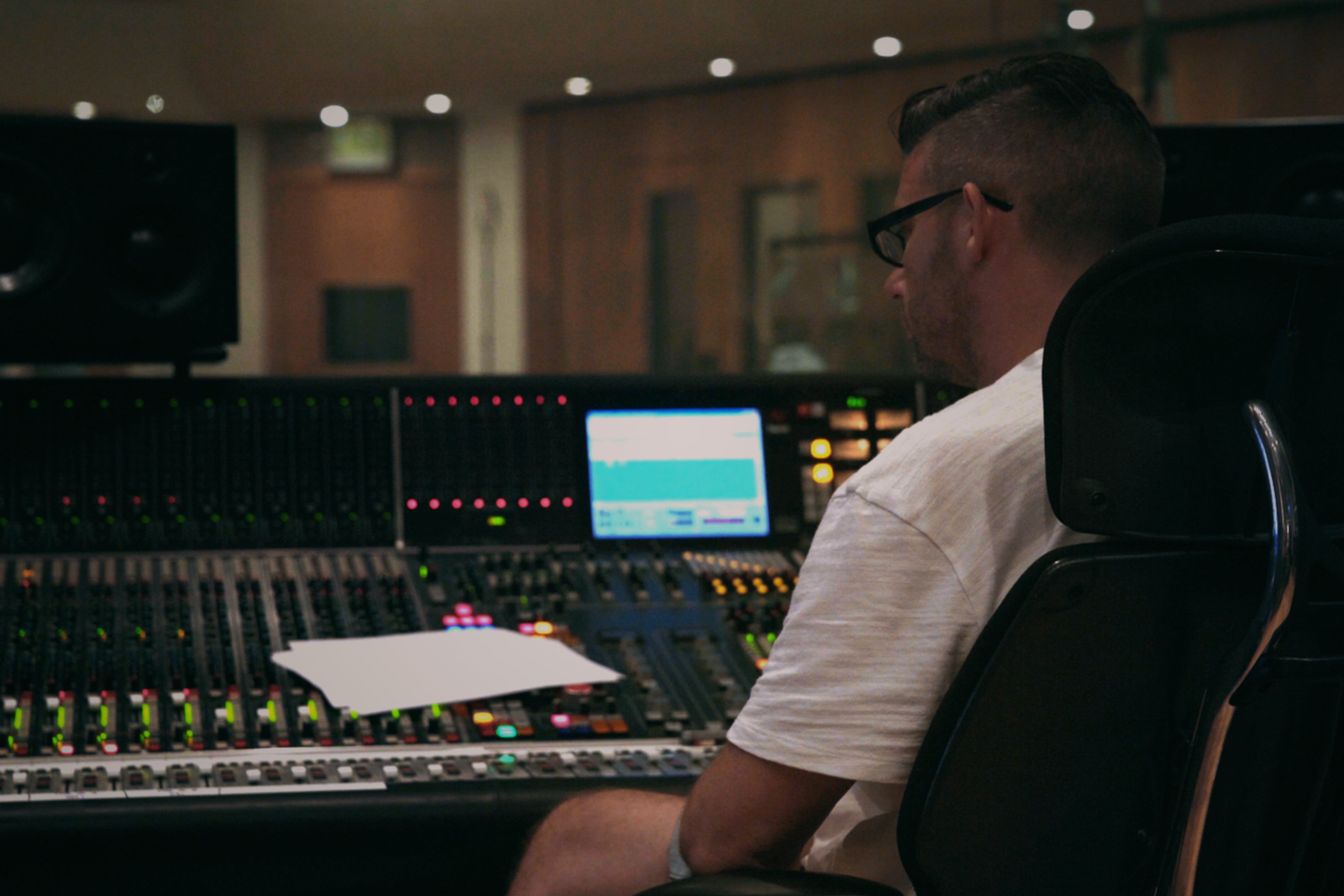Nick Wollage is an Emmy nominated recording engineer at the forefront of the film score. His outstanding talent has propelled him to the top of the industry, leading him to record the Oscar winning score for Attonement, and countless iconic soundtracks such as Star Wars: A Solo Story, How to Train Your Dragon, Wonder Woman, Harry Potter, Avengers: Age of Ultron and many more. He works regularly with elite composers such as Hans Zimmer, John Powell and Dario Marianelli.
When we approached you to discuss recording Superball, you instantly recommended British Grove Studios, here in London. Why was it right for this project?
NW: I'd say the question should be “What's not good about it?” – The first time I worked here, I went home with the abiding feeling that somebody with quite a lot of money had a terrible day in a studio somewhere, and went home and said “Right, I am going to design a studio, I'm going to leave no stone unturned, I'm going to build the best studio ever built”, and I think to some extent they very much succeeded, I think this place is just incredible for a large number of reasons. It's very well thought out, very well designed acoustically, and the attention to detail here makes a big difference.

The moment you walk in to this studio, you are surrounded by some of the best recording equipment available, including the stunning 96 channel Neve 88R. Surely this place must be heaven for a recording engineer?
NW: Precisely, the equipment speaks for itself really! The intergration of the old valve and vintage equipment and the modern contemporary technology is all just very well thought out. Everything works, it's very comfortable, the mic cupboard is basically an Aladdin's cave for an engineer. It's sounds like I'm promoting British Grove – I'm not, but it's just an amazing studio!

You are using quite a large selection of microphones for this project in order to create perspective for the virtual instrument. Can you talk a little about this?
NW: Well one of the exciting things about this opportunity was to exploit the extensive selection of microphones that British Grove have, and to be slightly experimental! We had a great opportunity to record a multi track which is relatively wide, and experiment within that. Me and the guys from Sonixinema discussed early on about the perspectives that we wanted to record, and we decided that there would essentially be three - the first being a fairly traditionally spaced close pickup, then a mid pickup and a far pickup, and within each of those I wanted to present some contrasting techniques and colours.

So now to get in to the nerdy stuff! Which microphones did you choose to record with, and why?
NW: For the close pickup we've got a Coles 4038 ribbon microphone which is being recorded as a mono signal, then there are two AKG 451s which are spread out in a sort of approximation to a top and bottom drum micing technique – so on one of them the phase is flipped to get the low end and that's summed to mono so that's the second close pickup In mono. Then there are two close stereo pairs, one which is a stereo ribbon mic called the R88 which is made by AEA, and the other one is a pair of Neumann U67's – and that's just the close pickup!
For the mid pickup, we've got our safe pair which is a pair of schoeps MK22s in ORTF formation, then the fun pair is an AKG C24 set up in MS mode which is always nice, so we can use either one or both of those in conjunction. Like I mentioned earlier, we are recording them to multi track so ultimately in the final analysis probably one or the other will be the actual mid pickup. For the far pickup we have two different sets of omni's, one which is a pair of Neumann KM53s which are small diaphragm valve condenser mics, and one which is a pair of Neumann M50s – so as your can see it's a pretty luxurious array of microphones to be recording with, but since we're here!

So when it comes to recording a sample library, how do you view the relationship between the performance and the recording process?
NW: I think there are two aspects of being a recording engineer, one is the sound that you capture and reproduce and the other is the actual management of the process. Largely the performer is concerned about the sonics, but they're probably more concerned about being made comfortable so that they can do what they do and focus on being able to perform as best they can. That's really the sort of latter part of the engineers role also, to facilitate that performer to do what he or she does almost transparently really.
In the instance of one player performing a percussion instrument, there are relatively few parametres – I don't have to worry about complicated headphone balances, separation or any of those things that you would do in a group recording context, but still we need to think about Joby's physical ability to play. Although I have a huge cage of mics around him, he still has to be able to perform without thinking about that. Generally speaking it's about making him feel like he can do his thing in his own time, and my end of things don't interfere with that!
For more information about Nick, visit www.air-management.co.uk/roster/nick-wollage
